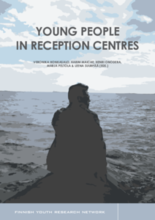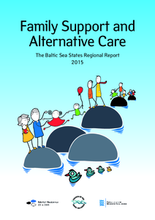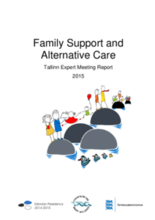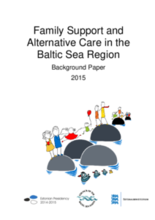Displaying 41 - 50 of 59
This study explores whether child and family-related factors are associated with later psychological problems in international adoptees in Finland. Researchers then investigated whether the length of time a child spends at home after adoption and before daycare moderates the aforementioned associations.
The focus of the position is to coordinate and implement projects by Plan International Country Offices and implementing partners, provide technical support for project planning, monitoring and evaluation and offer capacity building assistance for
Save the Children seeks foster homes in Finland for unaccompanied refugee children.
The article collection 'Young people in reception centres' presents how the young people applying for asylum in Finland and the people working with them experience the first few months that follow a young person’s arrival in Finland.
This document discusses the means by which the Council for the Administration of Criminal Justice and Youth Protection in the Netherlands (the Council) can provide the highest level of protection for children placed in the intercountry adoption focus group.
Fudan University and the University of Eastern Finland will open a joint Sino-Finnish Centre for Child Protection Research, SFCPR, in Shanghai.
This article examines how the voluntary care order differs in practice from the involuntary one and how voluntarism and involuntarism are represented in these two types of care order.
This report was developed as part of a mapping study aimed at analysing the situation of alternative care and family support in the Baltic Sea Region, assessing the achievements since the 2005 Ministerial Forum and identifying relevant opportunities and challenges for the future.
This report provides an overview of the two-day expert meeting on alternative care and family support in the Baltic Sea Region that took place in Tallinn, Estonia in May 2015.
This background paper was developed as part of a regional study which gathered relevant data and information on family support and alternative care in the eleven Member States of the Council of the Baltic Sea States (CBSS).





